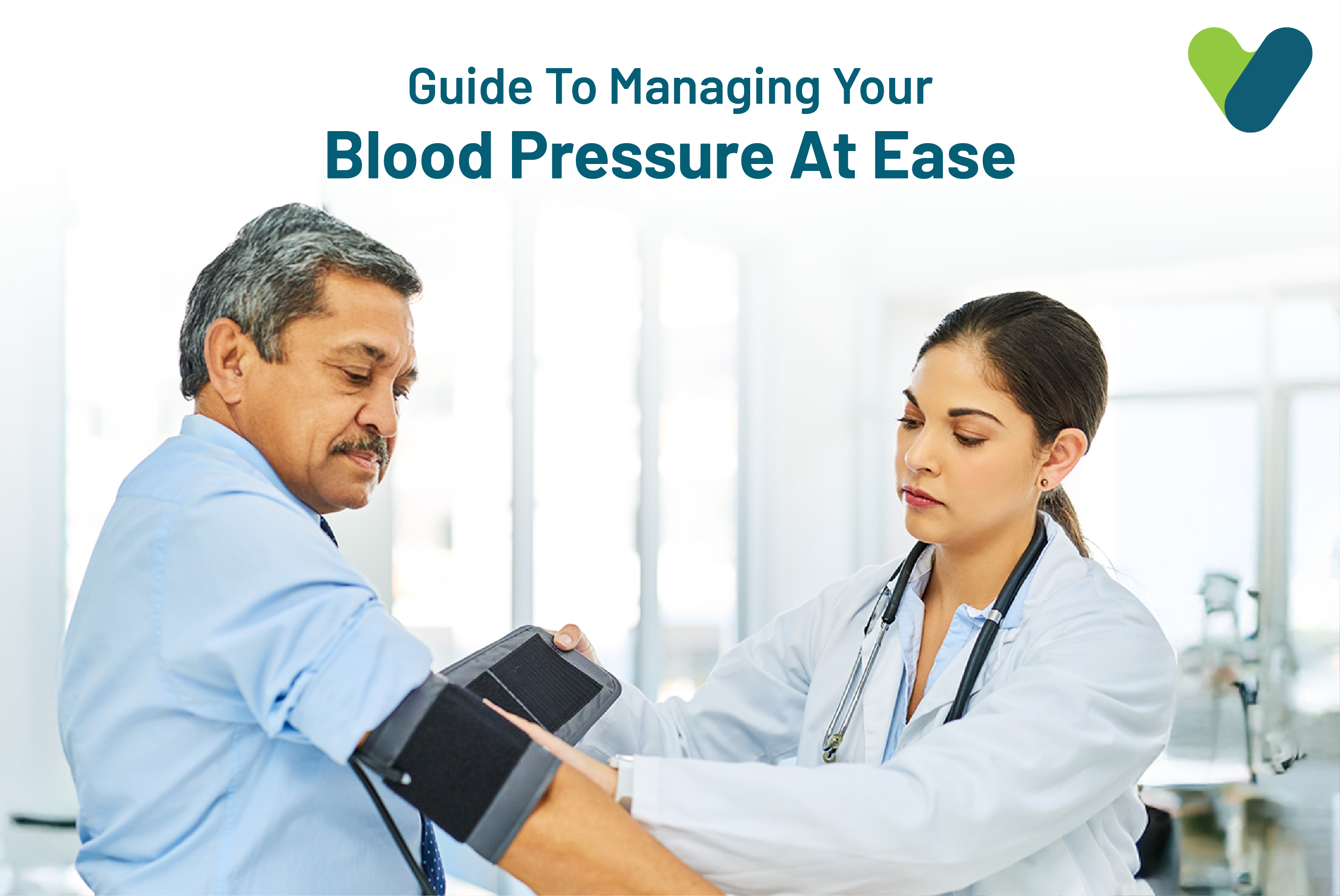Managing blood pressure has been a challenge for most people. Low blood pressure (hypotension) symptoms can include dizziness, lightheadedness, fainting, fatigue, cold clammy skin, and blurred vision, while high blood pressure (hypertension) often has no noticeable symptoms, but severe cases might cause headaches, shortness of breath, chest pain, confusion, fatigue or nosebleeds.
On top of that, most of us still find ourselves struggling with questions like Which part of the brain controls blood pressure?
Hypothalamus, brainstem, and medulla oblongata are crucial brain parts that control your blood pressure.
Age factor also contributes to blood pressure fluctuation. But if it happens on a frequent basis, it can lead to heart attacks, strokes, etc. That is why it is important to make some lifestyle changes to control your blood pressure and feel the difference.
Continue to read to find more clarity on controlling blood pressure.
About Blood Pressure
So what is blood pressure? Blood pressure is the pressure of circulating blood against the walls of blood vessels.Cardiovascular system health depends on this essential measurement, which shows its current condition.
Each time the heart beats, it pumps blood into the arteries. Blood pressure is highest when the heart beats, pumping the blood. This is called systolic pressure. When the heart is at rest, between beats, blood pressure falls. This is called diastolic pressure.
How Does the Brain Control Blood Pressure?
The brain serves as the central blood pressure controller because it occupies the medulla oblongata area of the brainstem. The cardiovascular control centre positions itself in this brain region to combine body signals that control heart rate and blood vessel tension levels.With the autonomic nervous system (ANS), the medulla oblongata establishes connections with the heart and blood vessels with two main pathways.
- Sympathetic Nervous System: During sympathetic nervous system activity, the heart accelerates its beat rate, and blood vessels contract to sustain elevated blood pressure during stress and physical activity.
- Parasympathetic Nervous System: The Parasympathetic Nervous System regulates heart rate decreases and blood vessel dilation to produce restful blood pressure levels.
- Baroreceptors: Blood pressure changes trigger brain signals from baroreceptors, which are located in the arteries as pressure-sensitive nerve endings. A decrease in blood pressure triggers the brain to instantly speed up the heart rate and restrict blood vessels to maintain stability.
- Chemoreceptors: The carotid arteries and the aortic arch contain chemoreceptors that indirectly evaluate oxygen levels, carbon dioxide, and pH changes to control blood pressure.
Key Factors That Contribute to Fluctuating Blood Pressure
All dependent on our brain and how it reacts to day-to-day activity, leading to blood pressure fluctuations. We have put together various factors that contribute to influencing your blood pressure:Fever leads to high BP
Fever and blood pressure can have a complex relationship, with fever potentially leading to a decrease in blood pressure due to dehydration and increased heart rate, or in some cases, an increase in blood pressure due to the body's response to infection.Heat exposure levels up your BP
Heat and humidity can impact blood pressure, potentially causing it to drop initially as the body attempts to cool down, or rise due to increased strain on the cardiovascular system. Staying hydrated, avoiding excessive alcohol, and maintaining a comfortable indoor environment are key to managing blood pressure during hot weather.Acidity leads to fluctuation in blood pressure.
Many individuals struggle with acidity problems and frequently complain about fluctuating blood pressure. So, can acidity cause high blood pressure? Acidity alone does not trigger high blood pressure, yet the stress produced by acid reflux could result in brief elevations of blood pressure levels.The continuous effects of GERD (gastroesophageal reflux disease) create an extra cardiovascular strain that can intensify hypertension symptoms. Proper dietary choices, together with lifestyle modifications, minimize the effects of acid on the human body.
Monitoring Blood Pressure at Home: Embrace Smartwatch technology
While some smartwatches can measure blood pressure, their accuracy is often debated, and they generally shouldn't replace traditional blood pressure monitoring methods. They can be useful for tracking trends, but users should always compare readings with those taken from a traditional cuff-based blood pressure monitor.To manage blood pressure through diet, focus on foods rich in potassium, magnesium, and fiber, while limiting sodium, saturated fat, and processed foods.
Foods that can help:Include
- fruits, such as kiwi, bananas, blueberries, strawberries, pomegranate, and oranges
- vegetables, for instance, green leafy vegetables and beets
- nuts, for example, pistachios and walnuts
- oily fish, such as mackerel
- spices, such as cinnamon, garlic
- Decreasing salt intake can benefit the heart and reduce blood pressure in people with hypertension.
- Caffeine
- Alcohol


